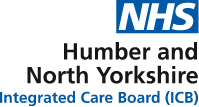Integrated Care – FAQs for 1 July 2022
What is integrated care?
Integrated care is about giving people the support they need, joined up across local councils, the NHS, and other partners including social care providers, voluntary and community enterprise sector and charities.
Integrated care involves partnerships of organisations that come together to plan and deliver joined up health and care services to improve the lives of people in their area, improving population health and reducing inequalities.
What is happening on 1 July 2022
The Health and Care Act 2022 will establish 42 Integrated Care Systems (ICSs) across England on a statutory basis. Integrated Care Boards (ICBs) will become statutory bodies on 1 July 2022 as part of the Health and Care Act 2022.
What are Integrated Care Boards?
An Integrated Care Board (ICB) is a statutory NHS organisation responsible for developing a plan for meeting the health needs of the population, managing the NHS budget and arranging for the provision of health services in the ICS area. When ICBs are legally established, clinical commissioning groups (CCGs) will be abolished.
What are Integrated Care Systems?
Integrated Care Systems (ICSs) are partnerships of organisations that come together to plan and deliver joined up health and care services to improve the lives of people in their area. They will be responsible for how health and care is planned, paid for and delivered.
How are ICSs made up?
ICSs are made up of all the partners in the health and care system, working together in the following ways:
- Integrated Care Partnership (ICP) – a statutory committee jointly formed between the NHS Integrated Care Board and all upper-tier local authorities that fall within the ICS area. The ICP will bring together a broad alliance of partners concerned with improving the care, health and wellbeing of the population, with membership determined locally. The ICP is responsible for producing an integrated care strategy on how to meet the health and wellbeing needs of the population in the ICS area.
- Integrated Care Board (ICP) – a statutory NHS organisation responsible for developing a plan for meeting the health needs of the population, managing the NHS budget and arranging for the provision of health services in the ICS area. When ICBs are legally established, clinical commissioning groups (CCGs) will be abolished.
- Local authorities in the ICS area, which are responsible for social care and public health functions as well as other vital services for local people and businesses
Other Important ICS features are:
- Place-based partnerships will lead the detailed design and delivery of integrated services across their localities and neighbourhoods. The partnerships will involve the NHS, local councils, community and voluntary organisations, local residents, people who use services, their carers and representatives and other community partners with a role in supporting the health and wellbeing of the population.
- Sector collaboratives will bring NHS providers together to achieve the benefits of working at scale across multiple places and one or more ICSs, to improve quality, efficiency and outcomes and address unwarranted variation and inequalities in access and experience across different providers.
What are the benefits?
Collaborating as ICSs will help health and care organisations tackle complex challenges, including:
- improving the health of children and young people
- supporting people to stay well and independent
- acting sooner to help those with preventable conditions
- supporting those with long-term conditions or mental health issues
- caring for those with multiple needs as populations age
- getting the best from collective resources so people get care as quickly as possible.
For more information visit: http://england.nhs.uk/integratedcare/
Other useful links
- The King’s Fund, Integrated Care
- The Kings Fund: How does the NHS in England work and how is it changing? What are the key organisations that make up the NHS? And how can they collaborate with partners in the health and care system to deliver joined-up care?
- NHS Confederation communication toolkit
- Local Government Association
